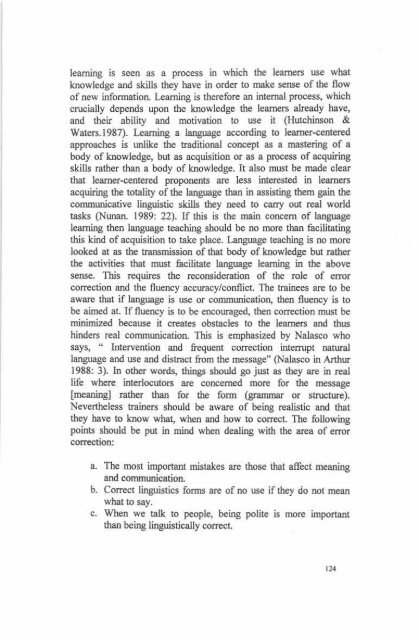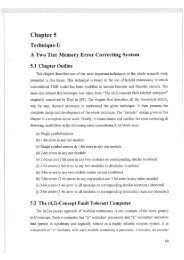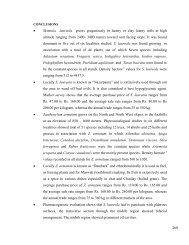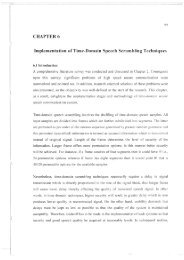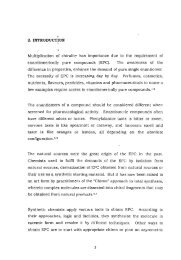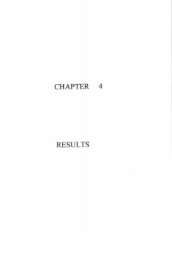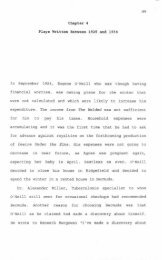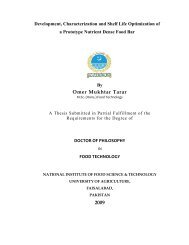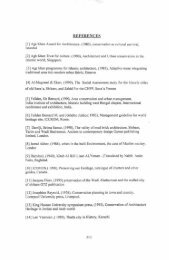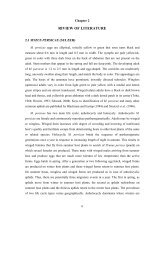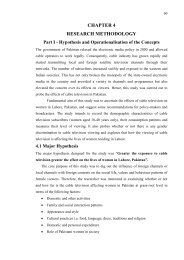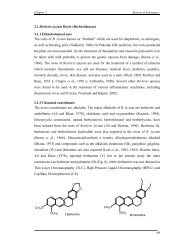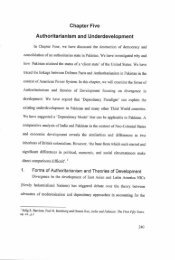I I|GSF hr tt.l.rt!.t tn.!. tr tlltbi - Higher Education Commission
I I|GSF hr tt.l.rt!.t tn.!. tr tlltbi - Higher Education Commission
I I|GSF hr tt.l.rt!.t tn.!. tr tlltbi - Higher Education Commission
You also want an ePaper? Increase the reach of your titles
YUMPU automatically turns print PDFs into web optimized ePapers that Google loves.
leaming is sen a! a process in which the le3mers ule what<br />
knowledgp and skills th€y have in order !o make selse of th€ flow<br />
of new infomtion. Leaming is thercfore an inlernal process, whjch<br />
cruially depeDds upon the loowledge the leahers alHdy have,<br />
and lhen abiliry and motivarion ro ur. it (Hutchinson &<br />
waters.l9E7). lf mirS a laDguagc accordioS to l€lM{dieEd<br />
apprcaches is unlike the t'adnional concept as a rnast€.in8 of a<br />
body of k'owl.dse, bu 6 acquisitioD or as a proceis of a.4uirins<br />
skills rather than a body of knowledge. It also musl be made cled<br />
{hat le3mer-centered proponents arc less int€rested iD le!D6<br />
acquiring the totality of the languag€ rh"n in assilting lhd Sain the<br />
cffmrmjcatjve linguistic stils tEy n€€d to carry od r€ l world<br />
tasks (N'll@. 1989: 22). If this is the min conc€m of largu.g€<br />
leuirg then language ieaching should be no more the hcilit ting<br />
lhis kDd ofacquisnion to |2le pl.ce. LanAuge tcehDg r no more<br />
look€d at as th€ rNmision of thal body of kmwledge bln rat|€r<br />
th€ activities thar m6t fa.ilit te languag€ lcahing in rhe abov€<br />
serue. 'Ihis Equires the rec$sideEtio<strong>tr</strong> of lhe rcle of €Iror<br />
conection and the flEncy accumcy/con{lict. The tEinees a.e to be<br />
awe th.t if language is N or cotmEicatio4 thm IlEncy is to<br />
b€ aimed al- If fluency is 1o be encou"ged lher corr€€tion husr be<br />
hinimized because it cr€at€s obs<strong>tr</strong>cl€s !o dle learners and thB<br />
hinden real conununicatior This is empba3ized by Nalarco who<br />
says, !' Ifierv€ntion ed frequent @rection intmpr nanual<br />
larguge dd ue and dis<strong>tr</strong>act fron the n€ssage" CNalNo in Adhu<br />
1988: 3). in odEr wo.A, things should so just as dley are ir rcal<br />
life wh€r. interloculors are concerFrd more for fte messsge<br />
<s<strong>tr</strong>ong>tn</s<strong>tr</strong>ong>€aningl rath€r than for th€ form Grammar or s<strong>tr</strong>u.rw}<br />
Nev€nheless <strong>tr</strong>airers should be aware of being rcalistic and that<br />
tbey have !o lmw what, when and how ,o cor€ct. TIle followinS<br />
points should b€ prn in mind wh.n dealing with $e ares of emr<br />
The most impo<s<strong>tr</strong>ong>rt</s<strong>tr</strong>ong>anl mistakes re those that a<strong>tr</strong>ect rneanirg<br />
CoEect lirguistics foms sE of ro use if they do not mear<br />
c. When we talk to pcopl., being politc k mc inpo<s<strong>tr</strong>ong>rt</s<strong>tr</strong>ong>ant<br />
lhan beins lirguistically cone.r.


